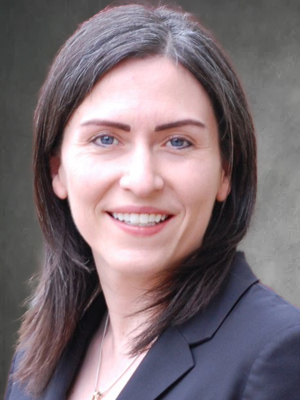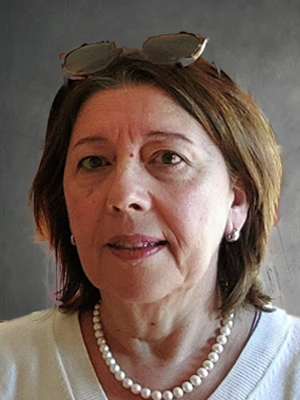BTAA Academic Leadership Program Fellows 2024-2025
Jason Cannon

Jason Cannon is the Acting Head and Professor of Toxicology, School of Health Sciences and Assistant Vice Provost for Interdisciplinary Graduate Programs, where he leads efforts in interdisciplinary graduate education and postdoctoral development at Purdue University. He received a B.S. in physiology from Michigan State University, a Ph.D. in toxicology from the University of Michigan, and postdoctoral training in neurodegeneration at the University of Pittsburgh. Dr. Cannon’s research interests are focused on discovering mechanisms of environmentally induced neurodegeneration that may lead to mental health disorders and neurological diseases. His research across biological scale and using comparative biology approaches connects biochemical mechanisms of neurotoxic action to neurochemical, neuropathological and neurobehavioral phenotypes. Dr. Cannon’s extramurally funded research program has identified dietary exposures, industrial compounds, and pesticides as exposures potentially relevant to the etiology of neurological disease. Moreover, his research has discovered novel pathogenic pathways of potential importance as biomarkers and therapeutic intervention. Select, additional prior leadership experience includes, as Director of Graduate Studies for the School of Health Sciences, Director of the Toxicology Graduate Program, and Head of the Purdue University Interdisciplinary Life Science (PULSe) Program.
Shelley A. Claridge

Shelley A. Claridge is a Professor and University Faculty Scholar in the Department of Chemistry and Weldon School of Biomedical Engineering at Purdue University, and founding co-head of the rapidly growing Materials Chemistry Division in the Department of Chemistry. Her research interests relate to scalable control over interface chemistry from molecular to macroscopic scales for applications including regenerative medicine, nanoscale electronics, and energy conversion. The transformative potential of her work has been recognized by foundation, industry, government, and academic awards, including the Schmidt Science Polymaths Award (2022), NIH NIBIB Trailblazer Award (2022), iCANX-ACS Nano Rising Star Award (2020) DARPA Director’s Fellowship (2019), DARPA Young Faculty Award (2017), 3M Nontenured Faculty Award (2017), DuPont Young Professor Award (2016), and NSF CAREER Award (2016). Work from her group has also been the subject of 9 granted patents and 3 additional pending patent applications to date. She is also an enthusiastic advocate for chemistry in the classroom. In her time at Purdue, she has instructed over 5000 undergraduates as part of a large-lecture general chemistry course for non-majors, providing an interactive multimedia experience integrating music, video, and live Q&A. Her students describe a unique ability to tie chemistry to real-world problems, and to make the 450-person lecture hall feel ‘personal and conversational’, resulting in recognitions including Purdue’s Charles B. Murphy Award for Undergraduate Education.
Elena Coda

Elena Coda Elena Coda is a Professor of Italian Literature at Purdue University. A native of Italy, she received her Ph.D. in Italian Literature from the University of California –Los Angeles in 1998. Currently she serves as Interim Head of the School of Interdisciplinary Studies and Associate Head of the School of Languages and Cultures. Professor Coda teaches undergraduate courses in Italian literature and culture. At the graduate level she teaches courses with an interdisciplinary comparative focus. Her research interests include Triestine literature; modernism; modern and postmodern landscapes in literature, European identities, and essayistic narrative. Her essays have appeared in peer reviewed collections and journals such as Quaderni d’Italianistica, MLN, The European Legacy, Nuova Prosa, Journal of European Studies and Lettere Italiane. She is the author of Scipio Slataper (2007) a book length study on an important Triestine writer and intellectual active in Trieste at the turn of the Twentieth Century. She is also the editor of several books and anthologies: The Promised Land (with Luigi Ballerini, Beppe Cavatorta, and Paul Vangelisti, 2000) Balleriniana (with Beppe Cavatorta, 2010) Revisioning Terrorism: A Humanistic Perspective (with Ben Lawton 2016) The volume My Karst and My City and Other Writings by Scipio Slataper, (edited, with an introduction and notes, by Elena Coda; translated by Nicholas Benson and Elena Coda, 2020) won the 2022 John Florio Prize for best translation. The competitive prize was awarded by the UK Society of Authors.
Kimberly S. Illingworth

Kimberly S. Illingworth, PhD, FAPhA is the Purdue University College of Pharmacy's Associate Dean for Faculty Affairs and Instruction, and a professor of pharmacy practice. Dr. Illingworth obtained her B.S. in pharmacy from Butler University and her Ph.D. in pharmacy administration from Purdue University. Her teaching and research interests predominantly focus on patient care, including patient behavior change, motivational interviewing, and health literacy, as well as the evaluation of the instructional methods to teach these topics to students. She established and directs the Purdue University Academic and Ambulatory Care Fellowship program. She served as Chair of the Economic, Social, and Administrative Sciences section of the American Pharmacists Association and the American Association Colleges of Pharmacy Social and Administrative Sciences section. She currently serves as Chair of the Teaching Academy Executive Council at Purdue. Her honors include being named in the Purdue University Book of Great Teachers and as a Purdue University Teaching Academy Fellow. In addition, she received an honorable mention for two Innovations in Teaching portfolios from the American Association of Colleges of Pharmacy, the Dr. Aziz Award for Outstanding Teaching at the Purdue University College of Pharmacy, and the Purdue University Charles B. Murphy Award for Outstanding Undergraduate Teaching.
Brian Leung

Brian Leung is a professor in Purdue University’s Department of English and the Immediate Past Chair of Purdue’s University Senate. For six years Professor Leung worked with the U.S. Department of State Institute on Contemporary U.S. Literature where, in his final year, he served as Principal Investigator and Director. His forthcoming fiction collection, A Terrifying Brush with Optimism, will be released by Sarabande Books in Spring, 2025. Leung is the author of Take Me Home (HarperCollins) which was a recipient of a Willa Award for Historical Fiction, World Famous Love Acts (Sarabande Books) recipient of the Asian American Literary Award, Ivy vs Dogg: With a Cast of Thousands! (C&R Press), All I Should Not Tell (C&R Press), and the well-received novel, Lost Men (Random House). In 2012, Lambda Literary Foundation presented him with its Mid-Career Novelist Award. Leung’s fiction, creative nonfiction, and poetry have appeared in numerous anthologies as well as Story, Always Crashing, Honey Literary, Crazyhorse, Grain, Gulf Coast, Kinesis, The Barcelona Review, Mid-American Review, Salt Hill, Gulf Stream, River City, Runes, The Bellingham Review, Hyphen, Velocity, The Connecticut Review, Blithe House Quarterly, Indiana Review, Crab Orchard Review, Crowd, and in the anthologies, Who’s Yer Daddy, The Habit of Art, Law and Disorder, A Flame Called Indiana, and Altered States. He is also the co-author of the non-fiction humor title, Not Another Feel Good Singles Book. Leung is a recipient of the University of Louisville's President’s Award for Outstanding Scholarship, Research, and Creative Activity, and a College of Arts and Sciences Outstanding Research and Creative Activity Award at that same institution. He served as Purdue’s Director of Creative Writing at Purdue University for six years. A native of Southern California, he received his M.F.A. in Creative Writing from Indiana University. He has teaching experience in fiction, creative nonfiction, poetry, drama, literary genre, and special topics in contemporary American literature. Professor Leung’s creative and scholarly interests include intellectual diversity and difference, including concerns surrounding race, class, gender, and sexuality.
Mohit Tawarmalani

Mohit Tawarmalani is the Executive Associate Dean of Faculty and Allison and Nancy Schleicher Professor at the Mitchell E. Jr., Daniels School of Business, Purdue University. He serves as the academic director of Krenicki Center for Business Analytics and Machine Learning. He received his Ph.D. and Masters from the University of Illinois at Urbana-Champaign. Prior to that, he received his Bachelors from Indian Institute of Technology, Delhi.
Mohit has worked in the MIS area of Tata Engineering and Locomotive Company (1993-1994) and as a software engineer in geometric modeling at ComputerVision (1995). He teaches courses in business analytics and optimization.
Mohit Tawarmalani’s research interests are at the interface of computer science, optimization, and operations research with applications in business and engineering. Mohit has co-authored a book on global optimization algorithms and has co-authored BARON, a software package widely used for global optimization. Mohit has interest in applications of optimization in harnessing solar energy, building better distillation trains, network systems design, and in understanding economics of business decisions. For his research, Mohit has been awarded the INFORMS Computing Society Prize in 2004, the Best Paper Award from the Workshop on Information Technology and Systems in 2005, and the Beale-Orchard-Hays Prize from the Mathematical Programming Society in 2006. He is also the 2003 Jay N. Ross Young Faculty Scholar and the 2006 Krannert Faculty Fellow.
Mohit was a founding co-director of Purdue’s Masters in Business Analytics and Information Management program, the co-chair of the design committee for Bachelors in Business Analytics and Information Management program, and led the team that won the 2023 INFORMS UPS George D. Smith Prize for innovative educational practices in training students to be practitioners of operations research and analytics.
Mohit serves as an Associate Editor for the Journal of Global Optimization and as a Technical Editor for Mathematical Programming Computation.
